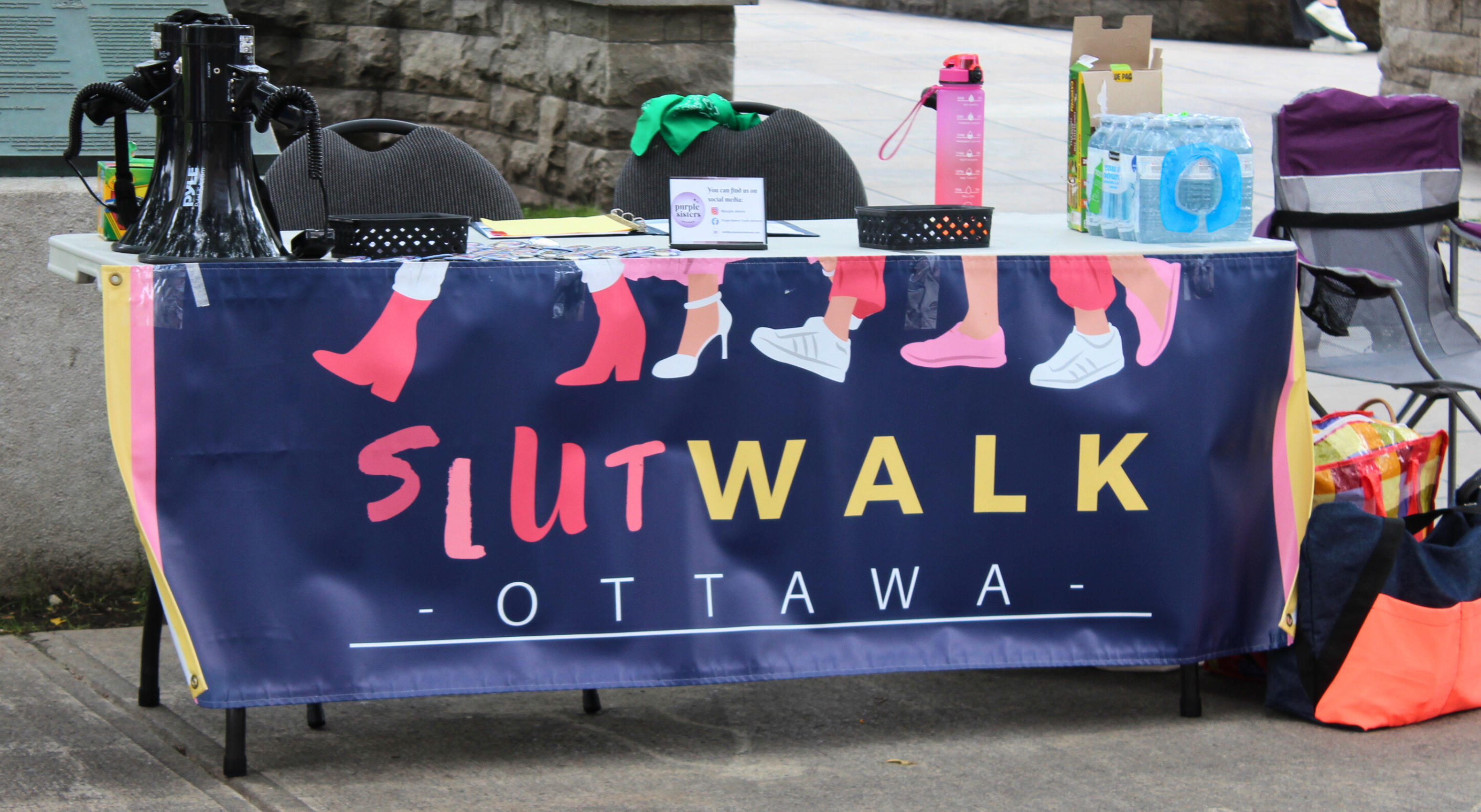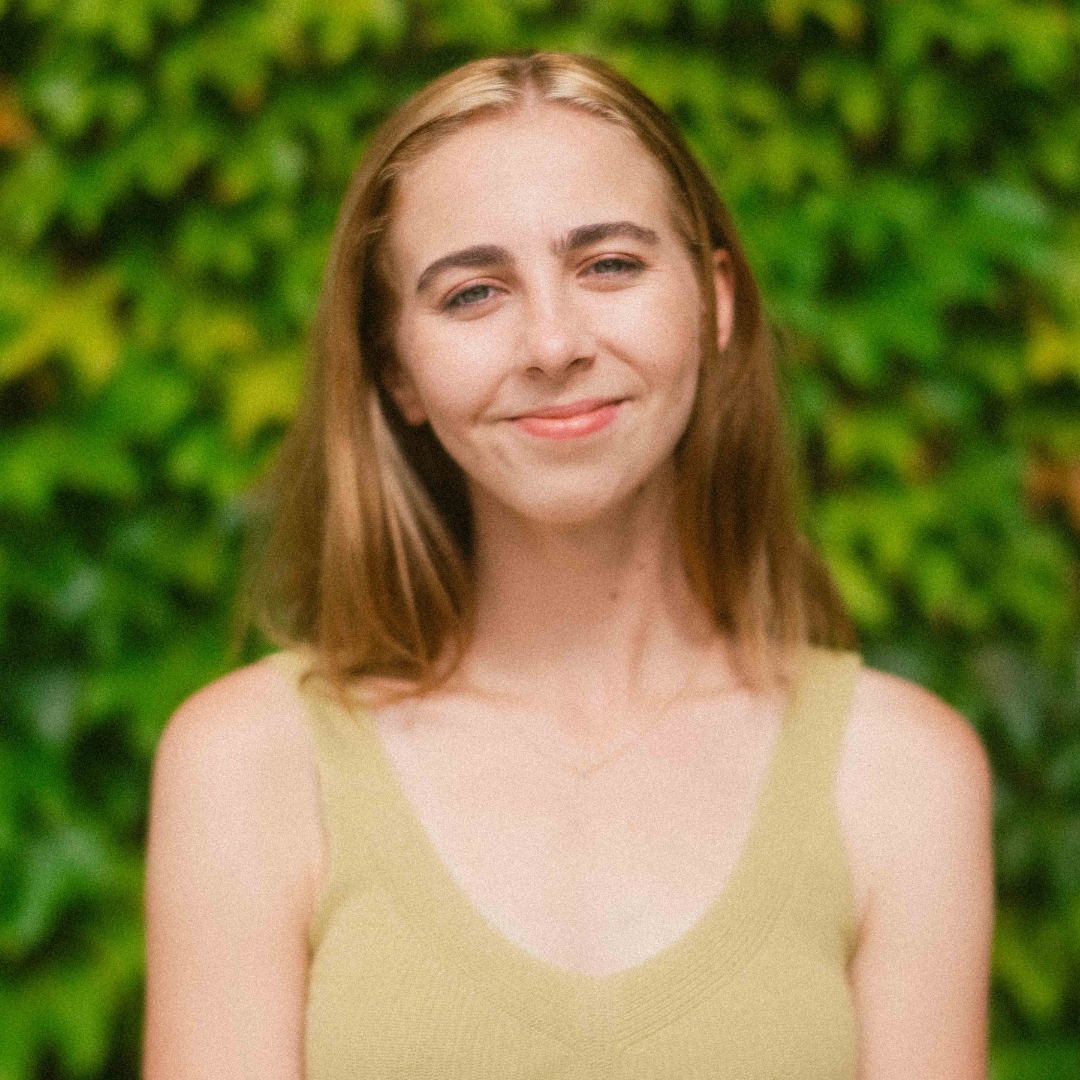“It’s a very clear fact of our lives that rape culture is still a big issue”
Content Warning: This article discusses sexual assault.
Sept. 8 — On the first chilly Monday of autumn, community members and organizers met at the Human Rights Monument for Ottawa’s 2024 SlutWalk. Organized by the Purple Sisters Youth Advisory Committee, the Ottawa SlutWalk has been an annual protest since 2011.
Before the event began, there was poster making and four tables set up for local organizations to share information about the services they provide for survivors of Sexual Assault. The Ottawa Rape Crisis Centre (ORCC), the Interval House of Ottawa, the Youth Network, and the Purple Sisters each had a table with pamphlets of information about their respective services.
The Fulcrum spoke with organizer Amira Brehaut before the march commenced to learn more about the SlutWalk and its importance to the community.
“SlutWalk originally started in Toronto in 2011; there were students at Toronto Metropolitan University who were complaining about the rates of sexual violence on campus [and] complained to the police.”
Brehaut then recalled a January 2011 incident where a Toronto police officer told York University students that women should not dress like “sluts” if they didn’t want to be sexually assaulted. “Obviously, that did not go over well with the community and so that started the SlutWalk movement which then spread across Canada and then the rest of the world.”
“It’s a very clear fact of our lives that rape culture is still a big issue,” said Brehaut, “like slut shaming, victim blaming, casually referring to women as bitches and bops and whatever the new mysogynistic term is. You spend any time in a highschool or university, it’s really hard to avoid that this is still a problem.”
“We see this very big need in the community to have a space where we can come together and loudly shout that we are having these experiences, if we have to face them then people have to hear about it because something has to change.”
“There needs to be better infrastructure for survivors in the medical system and in the criminal justice system,” shared Brehaut. “We need to bringing on more people who are trained in trauma informed care and anti-oppressive care and just making sure we have the infrastructure to help survivors after they’ve been victimized because I think we’re really lacking that; and the only way to push for that change is, we need a lot of people, and fortunately there are a lot of people who care about these issues.”
Despite the colder weather and some light on-and-off rain, more than 50 people had gathered by 1:45 p.m. when speakers began addressing the crowd from two microphones set up on the Human Rights Monument.
Before beginning the march speakers shared poetry, their appreciation for events like SlutWalk, and the importance of spaces for survivors to be vulnerable about the repercussions of Sexual Assault.
Speakers included: Julia Winterhalder and Nitya Thoneapu of the Purple Sisters, student poets Krishnpriya Singh and Jaden Croucher and burlesque performer and activist: Miss. Patience Plush.
Winterhalder and Thoneapu began the speaking with a land acknowledgement exercise before individually speaking to their experiences with SlutWalk and rape culture in everyday life.
The march departed the Human Rights monument around 2:20 p.m. and made its way up Elgin turning onto Wellington, next turning onto Bank around 2:45 p.m. and turning again on Somerset around 3:00 p.m.
The group of approximately 35 cycled through various chants as they walked:
“My body, my choice. Your body, your choice”
“Hey hey ho ho rape culture has got to go”
“Survivors united will never be defeated”
“Whatever we wear wherever we go, yes means yes and no means no”
“A dress is not a yes”
Many on-lookers and passers-by responded positively to the crowd, sharing smiles and commenting on signs.
When asked what university students could do to improve their awareness of rape culture Brehaut shared: “Keep an eye out for each other. University aged students tend to be adventurous, which is fine, but you want to make sure that you are keeping the people close to you safe, because things happen. I think it’s really important to go out in groups, take care of your friends if they’re too drunk at a party or whatever it may be, just have each other’s backs.”
“There are a lot of resources in the city available for people who are experiencing these things. For example the Youth Services Bureau, we have crisis lines, we have people who specialize in helping people get out of violent situations, or connecting them with mental health services after a traumatic event, looking into community resources if you have faced anything like that is very helpful.”
If you or someone you know is affected by sexual assault, you can contact 613-234-2266 (Sexual Assault Support Centre of Ottawa) or 613-562-2333 (Ottawa Rape Crisis Centre). To make your first appointment with U of O counselling visit Health Services at Minto Sports Complex (Room N203). A full list of local sexual assault resources is available here.








